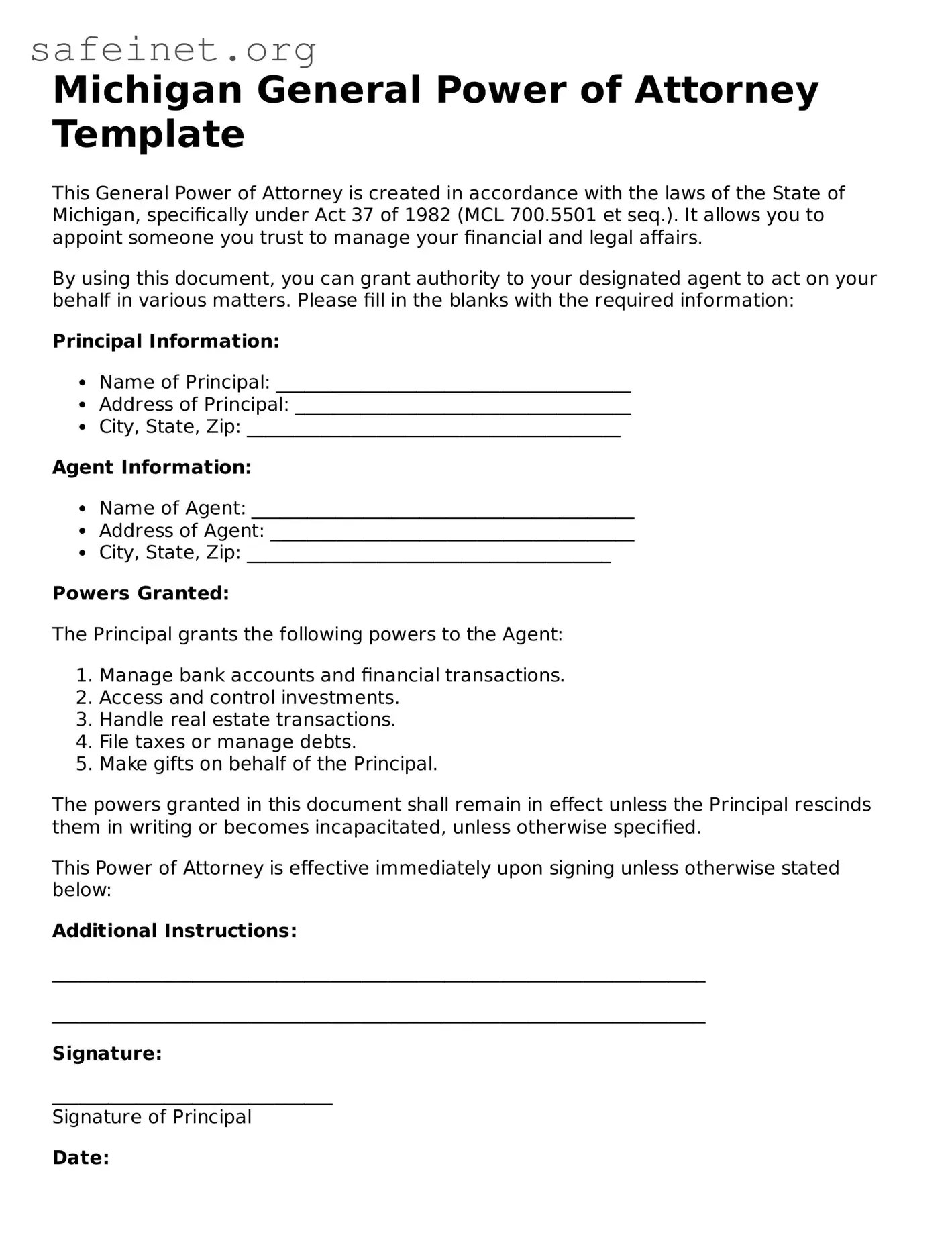What is a General Power of Attorney in Michigan?
A General Power of Attorney (GPOA) allows one person, the principal, to grant authority to another individual, the agent, to make decisions and take actions on their behalf. This document can cover a broad range of responsibilities, including handling financial matters, managing real estate, and making legal decisions. It is designed to provide flexibility and ensure that someone trusted can manage affairs if the principal is unable to do so.
Who can be appointed as an agent in a General Power of Attorney?
In Michigan, any competent adult can serve as an agent. This individual can be a family member, friend, or even a professional, such as an attorney. It is crucial that the principal selects someone trustworthy and responsible, as this person will have significant control over the principal's financial and personal affairs.
What are the main responsibilities of an agent appointed under a General Power of Attorney?
The agent's responsibilities under a GPOA may include managing bank accounts, paying bills, handling investments, and buying or selling property. Additionally, the agent may also make medical decisions if expressly stated in the document. It is vital that the agent acts in the best interest of the principal and keeps accurate records of their actions and decisions.
What happens if the principal becomes incapacitated?
If the principal becomes incapacitated, a General Power of Attorney typically remains in effect unless it is specifically stated that it terminates upon incapacity. This provision ensures that the agent can continue to act on the principal's behalf without interruption. However, it is advisable to create a Durable Power of Attorney if the intent is for the agent to continue acting even in case of incapacitation.
How does one revoke a General Power of Attorney in Michigan?
Revoking a General Power of Attorney can be achieved by completing a formal revocation document and notifying the agent of the decision. The principal must also inform any institutions or individuals who were relying on the original power of attorney about its cancellation. It is recommended to keep a copy of the revocation for personal records, ensuring clarity regarding the agent's authority.
Is it necessary to have the General Power of Attorney form notarized in Michigan?
In Michigan, it is advisable to have a General Power of Attorney notarized to enhance its credibility. While notarization is not strictly required for the document to be valid, many institutions and service providers may request a notarized copy to verify that the document was signed willingly and competently. Including witnesses can also add an extra layer of assurance.
Can a General Power of Attorney be used to make healthcare decisions?
A General Power of Attorney can include provisions for making healthcare decisions, but in Michigan, there is a dedicated document called a Durable Power of Attorney for Healthcare that is specifically designed for this purpose. If the principal wants to ensure comprehensive healthcare decision-making power, it is best to create both types of documents, as they cater to distinct needs and responsibilities.
